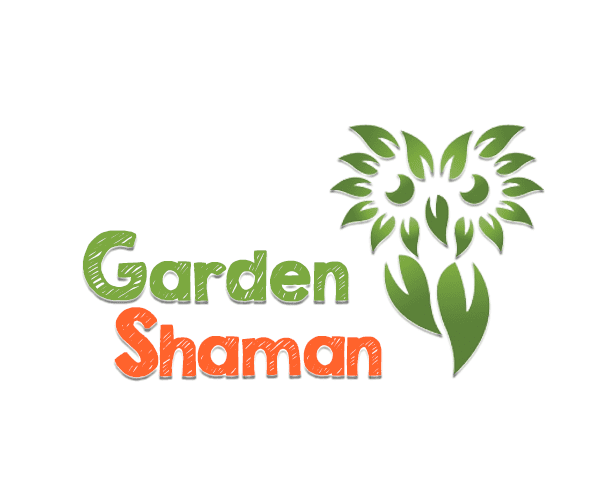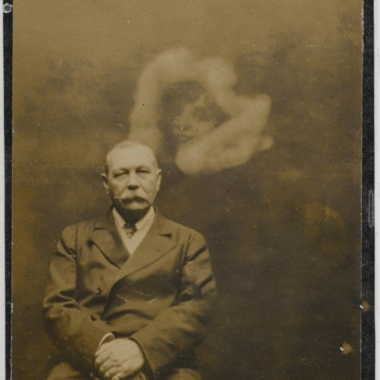- Presentation
- Early life and education
- Research and exploration
- Main works and publications
- Influence and legacy
- Concluding thoughts on Dr. Christian Rätsch
1st performance
Dr. Christian Rätsch's pioneering research has dedicated a lifetime to the study of shamanism, particularly the ethnomedicinal and ritual use of plants and fungi. His influence extends to many areas of ethnopharmacology and ethnomedicine, and he is particularly known for his studies on psychoactive substances [8][9]. His works, including the important work "Shamanism and Tantra in Nepal", based on 18 years of research, have earned him recognition not only in the academic world but also beyond. This book offers a comprehensive insight into the living tradition of shamanism and tantra in Nepal and contains numerous high-quality reproductions of thankas as well as previously unpublished photos of healing ceremonies [1][2].
Dr. Rätsch's work, enriched by collaborations with other leading experts such as Terence McKenna and Markus Berger, has laid the foundation for a deeper understanding of the role of plants such as Amanita and Papaver in shamanistic rituals. His research sheds light on the cultural use of psychoactive plants and fungi, which is of interest not only to anthropologists but also to a wider audience. This article aims to explore his legacy and influence as an ethnopharmacologist, ethnologist and German anthropologist and how his work contributes to the expansion of consciousness [8][9].
2. early life and education
Christian Rätsch grew up in Berne, the Hamburg garden city founded by his grandparents [3]. His interest in the world of ethnology and ethnopharmacology was awakened at an early age and led him to study Ancient American Studies, Ethnology and Folklore at the University of Hamburg [3][8][9].
- Training and first steps:
- Studied Ancient American Studies, Ethnology and Folklore at the University of Hamburg [3][5][6][7][8][9].
- Conducting ethnological field research as a participant observer in Chiapas for his dissertation [3].
- Learning the Mayan language of the Lacandon Indians in Mexico for his research [5].
- Three-year stay with the Lacandon Indians, during which he learned their language and culture [5][6].
His dissertation "The Spells and Incantations of the Lacandon Indians" focused on the magical practices of the Mayan peoples of Chiapas, Mexico. This work marked not only the completion of his academic training, but also the beginning of a lifelong dedication to the study of shamanistic practices and the ritual use of psychoactive plants [3][9]. Rätsch identifies himself as a free spirit, which reflects his open and explorative approach to ethnopharmacology and ethnomedicine [9].
3. research and exploration
Dr. Christian Rätsch has made a name for himself not only through his research, but also through his personal experience with psychoactive plants and mushrooms. He tested the effects of all the psychoactive plants and mushrooms described in the "Encyclopaedia of Psychoactive Plants" on himself in order to gain a deeper understanding of their effects [3]. This direct experience with the substances enabled him to build up a comprehensive and authentic knowledge, which is reflected in his numerous publications.
- Important works and contributions:
- "Encyclopedia of Psychoactive Plants" - A standard work in the field of psychoactive substances, published in 17 editions [6].
- "Indian medicinal herbs", "Medicinal herbs of antiquity", "Plants of love" - books that deal with the ethnomedical and ritual use of plants [11].
- Development of shamanic incense based on his extensive studies with shamans, including Lingam Dhoop and White Sage [12].
Rätsch also took a critical look at society and existing drug policies. He advocated the decriminalization of all psychoactive substances and criticized the distinction between "legal" and "illegal" drugs. For him, alcohol was the most dangerous drug and he saw the internet as potentially more addictive than LSD [3]. His views reflect a profound critique of Western culture and the neoliberal system, which he believes encourage addiction [3].
As the additional instruction to create a suitable image and add book recommendations is not directly applicable to this section, it has not been included here.
4. main works and publications
- Encyclopedia of psychoactive plants (1998)This reference book is considered the standard in the study of psychoactive substances and has been translated into several languages. Dr. Rätsch tested the effects of all the psychoactive plants and mushrooms described in this book on himself in order to gain a deeper understanding of their effects [3].
- Other important publications:
- A cosmos in the rainforest: Discusses the dying rainforests and their cultural impact. Price: 29,80 Euro [4].
- Shamanism and Tantra in NepalExplores the unique combination of shamanism and tantra in Nepalese culture. Price: 69,80 Euro [4].
- Mistletoe - a medicinal plant of our timeCovers mythology, botany, signatures, naturopathy and oncology. Price: 39,90 Euro [15].
- Roles and memberships:
- Publisher of the Yearbook for Ethnomedicine and Consciousness Research [3].
- President of the Ethnomedicine working group (AGEM) [3].
- Member of the Advisory Board of the European College for Consciousness Studies (ECBS) [3].
- Dr. Rätsch died during a lecture tour for his book Encyclopedia of psychoactive plants - Volume 2 [3].
Together with his wife, Dr. Claudia Müller-Ebeling, he also wrote Pagan Christmas and contributed to Shamanism and Tantra in Nepal, Ayahuasca and Witchcraft medicine to this. These works underline the diversity and depth of his work and his ability to make complex topics accessible to a wide audience [13].
5 Influence and legacy
Dr. Christian Rätsch leaves an impressive legacy in both the scientific community and the wider public through his extensive research and publications. His role and contributions include:
- Roles and memberships:
- Professional contacts and influences:
- Contributions to decriminalization and education:
- Commitment to the decriminalization of all psychoactive substances and criticism of existing drug policy [8]
- Criticism of the distinction between "legal" and "illegal" drugs and the term "drugs" in favor of "psychoactive substances" [3]
- Emphasis on the dangers of alcohol and the promotion of addiction by Western culture in contrast to the ritual and regulated use of psychoactive substances by indigenous peoples [3][8]
Dr. Rätsch's profound criticism of neoliberal culture and his views on the Role of psychoactive substances in society have contributed to important discussions and a rethinking of drug policy and education. His approach of exploring the effects of psychoactive plants and fungi through personal experimentation has not only enriched his understanding and publications, but has also paved the way for more authentic and experiential research in ethnopharmacology [8][13].
6 Concluding thoughts on Dr. Christian Rätsch
The life and work of Dr. Christian Rätsch offers a comprehensive perspective on the deep connection between humans and nature through the Shamanism and the use of psychoactive plants. His relentless pursuit of knowledge and understanding in this field has not only enriched the scientific community, but has also sparked a broader public interest in ethnopharmacology and ethnomedicinal practices. Through his personal experiences and intensive research, Dr. Rätsch has built a bridge between the traditional shamanistic ways and the modern world, always emphasizing the importance of respect for all living beings.
His legacy and influence extend far beyond the boundaries of academic research and challenge us to reflect on existing drug policies, the role of psychoactive substances in society and our own relationship with nature. Through his commitment to decriminalization and education about psychoactive substances, Dr. Rätsch contributes to a more progressive and open dialogue about these issues. His work inspires further research and a deeper understanding of the complex relationships between humans, plants and the surrounding world.
Further questions and answers about Dr. Christian Rätsch
What was the cause of death of Dr. Christian Rätsch?
Dr. Christian Rätsch died unexpectedly in Kißlegg in the Allgäu region due to the acute consequences of a stomach ulcer. This happened while he was on a reading tour to present his new book "Encyclopaedia of Psychoactive Plants - Volume 2", which he had written together with Markus Berger.
Youtube
References
[1] – https://buchhandlunghofbauer.buchkatalog.at/schamanismus-und-tantra-in-nepal-9783903071964
[2] – https://shop.falter.at/detail/9783903071964/schamanismus-und-tantra-in-nepal
[3] – https://de.wikipedia.org/wiki/Christian_R%C3%A4tsch
[4] – https://bacopa-verlag.at/verlag/autoren/christian-ratsch
[5] – https://www.lovelybooks.de/autor/Christian-R%C3%A4tsch/
[6] – https://www.christian-raetsch.de/
[7] – https://www.krimpedia.de/Christian_R%C3%A4tsch
[8] – https://www.youtube.com/watch?v=NztTbgyLgSg
[9] – https://taz.de/!200224/
[10] – https://www.fazemag.de/bekannter-drogenforscher-verstorben/
[11] – https://www.tem-akademie.com/referentinnen/christian-raetsch/
[12] – https://www.magie-esoterik-versand.de/catalog/Raeucherstaebchen-Raeuchern/Schamanische-Raeucherungen:::19_142.html
[13] – https://at-verlag.ch/news/der-at-verlag-trauert-um-seinen-autor-dr-christian-raetsch.html
[14] – https://www.kosmos.de/de/rauchern-und-raucherstoffe-im-schamanismus-mit-christian-ratsch_1900172_100-113-900172-video?cpkey=VNPXttI-TKSZ507SCo7LOsX9tfD2230VmPWrgHkysagoiEOsHPI18qioEADyG3Y-gB0TvgsYIK1zwOUU9JefcfezbotPFT79Fdbq3jW9DH8~
[15] – https://www.beck-shop.de/christian-raetsch/creator/565634915












